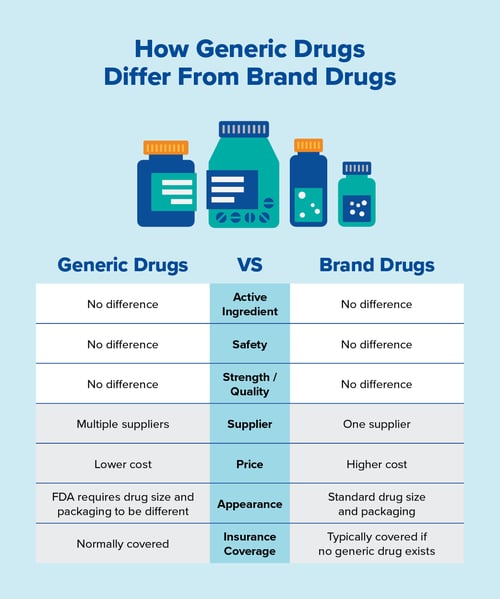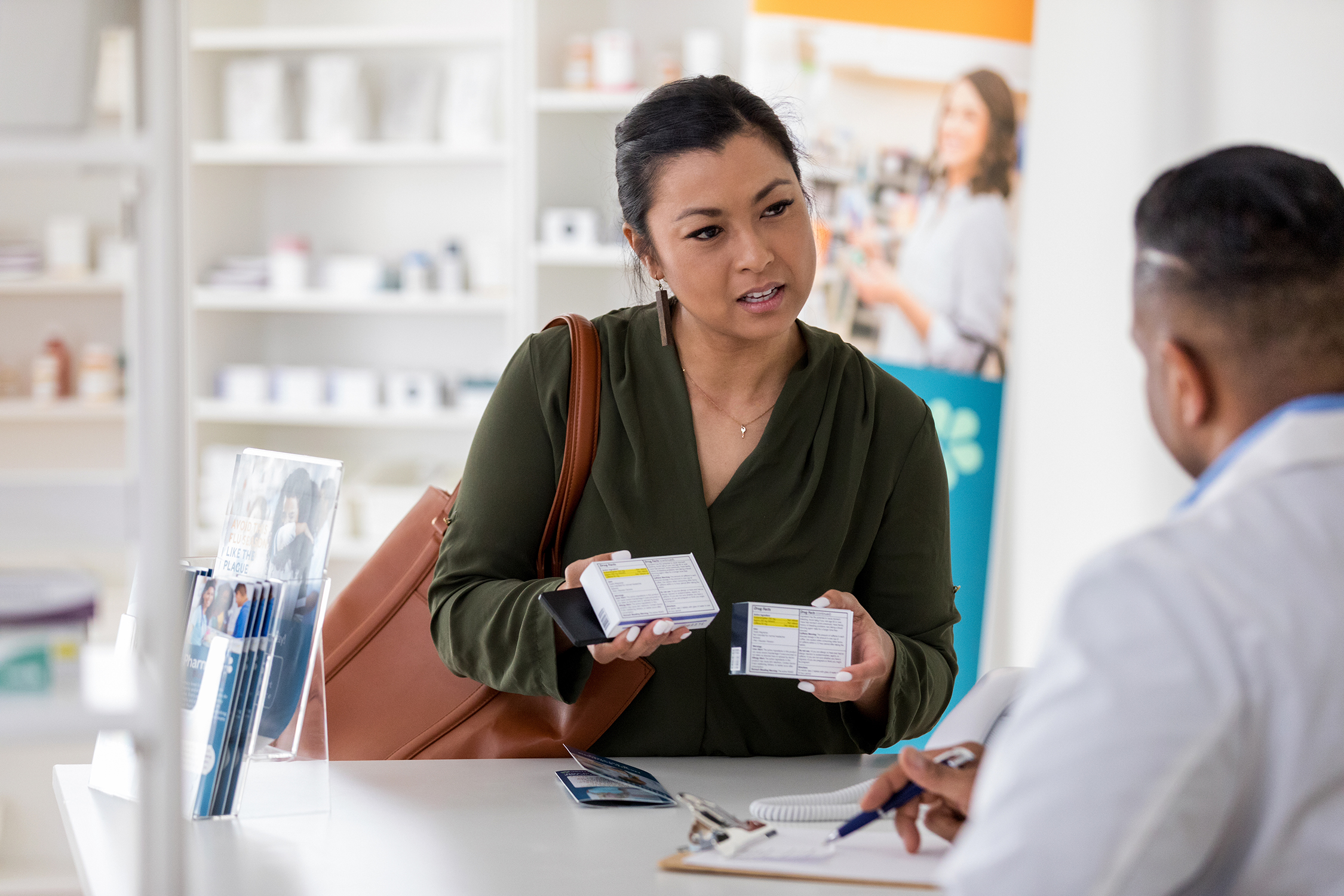If you’re looking for an easy way to save money on your medications, always ask for generics! Whether over-the-counter medications such as ibuprofen or a prescription, all generic medications have to pass the same stringent tests as the name brand but are about five times less expensive than their brand-name counterparts.[1]

What are Generic Drugs?
A generic drug works the same way as a brand-name drug in dosage, safety, strength, quality, effectiveness, usage and consumption. All generic drugs are approved by the Food & Drug Administration (FDA) and must use the same active ingredients as its brand equivalent.
Are Generics Safe?
Yes. All generic drugs are approved by the Food & Drug Administration (FDA). The FDA requires all generic drugs to use the same active ingredients as brand-name drugs and work the same way as its brand equivalent. They have the same side effects and benefits as the brand-name drugs.
History of Brand vs. Generic drugs?
Manufacturers invest many years of research and spend millions of dollars developing new drugs to bring to market. To enable them to recoup their expenses, they are granted a patent on the drug for 17 years. Once the manufacturer’s patent has expired for a drug, generic manufacturers can bring an equivalent drug to market. When generic drugs enter the market, prices for the drugs can drop considerably.
Do Generics Look the Same as the Brand Drug?
No. In the United States, trademark laws do not allow generic drugs to look like the brand-name drugs. However, the generic drugs must have the same active ingredients. Colors, flavors and appearance may differ, but they do not affect the drug’s effectiveness.
Do Generics Cost Less?
Yes, they generally cost less because they do not have to repeat the clinical trials that the brand name drug did. According to the FDA, prices can be as low as 85% less than the brand-name drug when multiple generic companies market the same product.[2]
Does Every Drug have a Generic?
No. Not every brand-name drug has a generic. But those that do can be much less expensive. Elixir Insurance for example, has generic drugs on our lowest tier, tier 1.
How Do I Know if a Generic is Available?
If you are prescribed a medication, ask your doctor or pharmacist if there is a generic available and if you can try that rather than the brand-name version. In some cases, your doctor may require you to use the brand-name drug for various reasons so be sure to discuss this with your healthcare professional.
Drugs Made in Better Factories than Generics?
No. All factories must meet the same high standards. The FDA carefully monitors factories that produce all drugs.
Do Generic Drugs Take Longer to Work?
No. Generic drugs are required to work in the same manner as their brand-name drug equivalents.
According to the FDA, Nearly 9 in 10 prescriptions filled in the United States are for generic drug.[3] Using generic drugs is an excellent alternative to consider and can have a huge cost savings. Don’t forget that asking for a 90-day supply or using mail-order can also help cut costs as well. If you are considering switching to a generic drug, make sure to talk with your doctor or pharmacist about your best course of treatment.
This information is for educational purposes only and does not replace treatment or advice from a healthcare professional. If you have questions, please talk with your doctor.
[1] U.S. Food & Drug Administration (FDA) (2021). Generic Drug Facts. https://www.fda.gov/drugs/generic-drugs/generic-drug-facts.
[2] U.S. Food & Drug Administration (FDA) (2021). Generic Drug Facts. https://www.fda.gov/drugs/generic-drugs/generic-drug-facts.
[3] U.S. Food & Drug Administration (FDA) (2018). Patient Education. https://www.fda.gov/drugs/generic-drugs/patient-education
*This Newsletter may contain links to other websites and resources provided by third parties, these links are provided for your convenience only. This includes links contained in advertisements, including banner advertisements and sponsored links. We have no control over the contents of those sites or resources, and we accept no responsibility for them or for any loss or damage that may arise from your use of them. If you decide to access any of the third party websites linked in this newsletter, you do so entirely at your own risk and subject to the terms and conditions of use for such websites.

